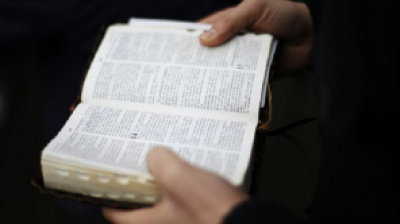The Beautiful Truths of Ezekiel 18

Christian leaders are hit with many concerning issues within the modern church. Church attendance is in a state of decline in many areas. Even in the Bible Belt, the culture is becoming post-Christian. As a Christian leader myself, I have had great anxiety over these issues. One of the important truths that has helped me cope is the doctrine of divine sovereignty, realizing that God is in control. Quite honestly, as one can see in Revelation, it may be that God himself is removing the light of many churches from their lampstands due to a loss of their first love (Rev. 2:5).
Yet, another area that I have struggled with is the idea that I, as a pastor, am personally responsible for the actions of others. If a person doesn't respond to the gospel or if someone has caused issues, I thought that I was responsible for their actions, or the lack thereof. However, I recently came across a wonderful chapter that illuminated many beautiful truths that have brought me hope. Ezekiel 18 teaches three important truths one must remember when ministering in this culture.
The Beautiful Truth of Personal Accountability. The first truth that must be considered in Ezekiel 18 is the issue of personal accountability. Ezekiel gives three test cases that notes how God holds each person responsible for his or her own actions.
Test Case #1: The Righteous Man (Eze. 18:5-9). Ezekiel considers the righteousness of a man who probably lives in a sinful area. The man lives according to God's standards and "does what is just and right" (18:5). The man trust God as he does not commit idolatry (18:6a) and treats others justly (18:6b-8). The man of faith is not held accountable for the actions of the society around him. Rather, God holds him accountable for his own actions (18:9).
Test Case #2: The Wicked Son (Eze. 18:10-13). The son is nothing like his father. One can assume that the father was a good parent. The wicked son has chosen his path. He is guilty of violence (18:10), idolatry (18:11a), adultery (18:11b), and abuses others (18:12-13). The judgment of the son is not the father's fault. Instead, as Ezekiel states, "Since he has committed all these detestable acts, he will certainly die. His death will be his own fault" (18:13).
Test Case #3: The Righteous Grandson (Eze. 18:14-20). The wicked son has a son who is the righteous man's grandson. The grandson sees the evil deeds of his father and chooses to live in faith according to God's laws. This individual is not held responsible for the deeds of his father. Rather, "the righteousness of the righteous person will be on him, and the wickedness of the wicked person will be on him" (18:20). No matter where a person comes from and no matter how bad a person's parents are, God does not hold the child responsible for the actions of his or her parents. Each person is held accountable for their own actions.
Understanding this truth has brought me great peace. We are responsible for getting the message of the gospel out there. We give defenses for the faith. But ultimately, each person is responsible for him or herself. We cannot change anyone. Only God can. So, be faithful in what God has called you to do and leave the results up to him.
The Beautiful Truth of Providential Ambition (Eze. 18:23-29, 32). Another great truth shown in Ezekiel 18 is God's desire for people to be saved. God asks, "Do I take any pleasure in the death of the wicked . . . don't I take pleasure when he turns from his ways and lives?" (18:23) Again in verse 32, God says, "For I take no pleasure in anyone's death . . . So repent and live!" (18:32). In both of these passages, God shows that he does not take pleasure in judging and condemning anyone. God desires that people repent of their sins and turn to him so that they can avoid judgment. I believe that Simon Peter probably had this chapter in mind when he wrote "The Lord does not delay his promise, as some understand delay, but is patient with you, not wanting any to perish but all to come to repentance" (2 Pet. 3:9). Some may question God's grace, such as those mentioned in Eze. 18:25-29, but it must be remembered that God does not desire for anyone to be in hell or for anyone to face judgment. Ezekiel 18 makes this vividly clear!
The Beautiful Truth of Penitent Acceptance (Eze. 18:21-22; 30-31). The final great truth found in this amazing chapter is that God accepts a person's repentance. Since each person is held accountable for one's own actions and that God desires for all to be saved, then it is no surprise that God willingly accepts the genuine repentance of anyone who calls upon his name. If a wicked person genuinely repents from all the sins he or she has committed, God will forgive him (18:21-22). God appeals to Israel and to all people to repent and turn to him
These truths are remarkable and quite revolutionary when properly understood. Some believe that the God found in the OT is a mean, vengeful being. But, such is not the case. The God of the OT is the same God of the NT because he is the genuine God over all creation. God holds each person accountable. Each person will have to stand before God in judgment (Heb. 9:27), including Christians (Rom. 14:10). So, don't think that you will be held accountable for another person's actions. In addition, don't think that God is unwilling to accept your or anyone one else's repentance. He will because it is not God's will for any to perish, but for all to come to repentance (2 Pet. 3:9).
© 2018. BellatorChristi.com.




























